Notebook of Gerard Henderson Cowan - Part 6
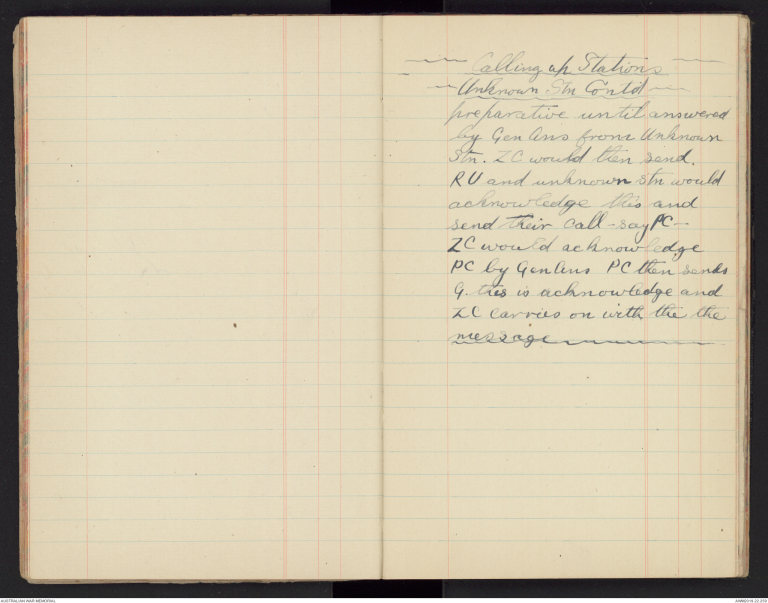
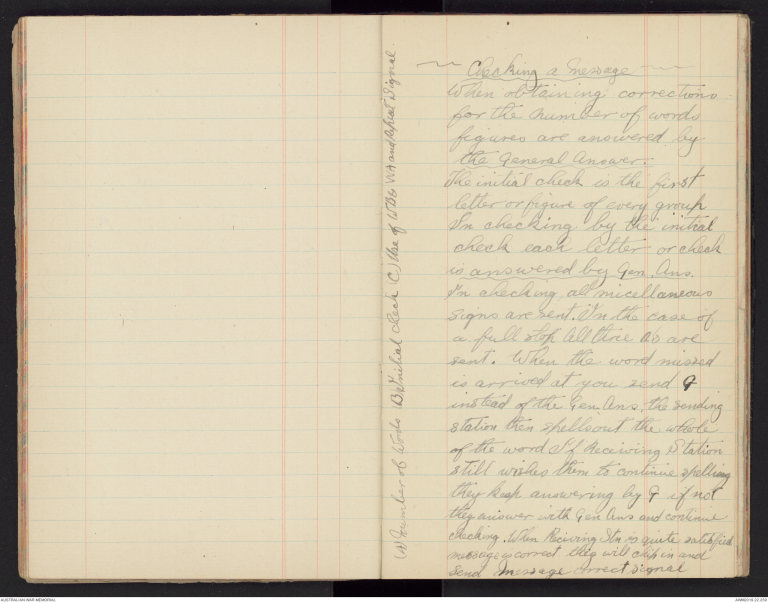
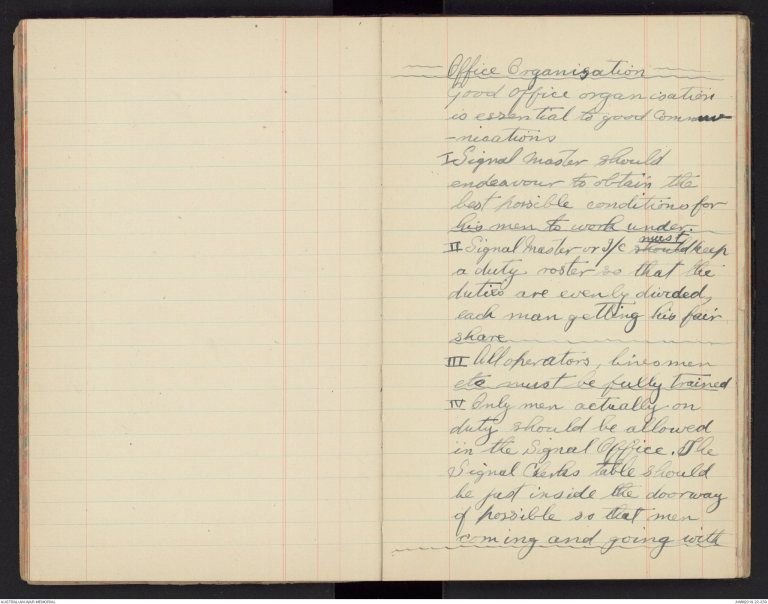
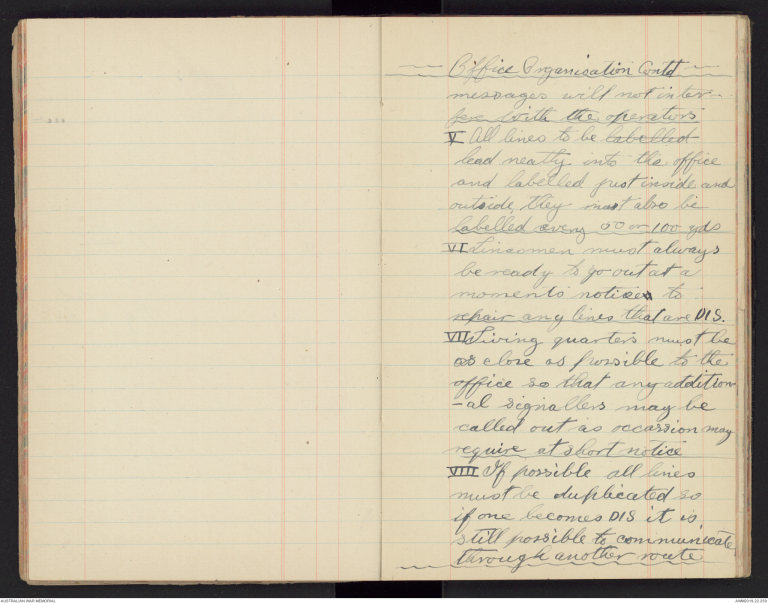
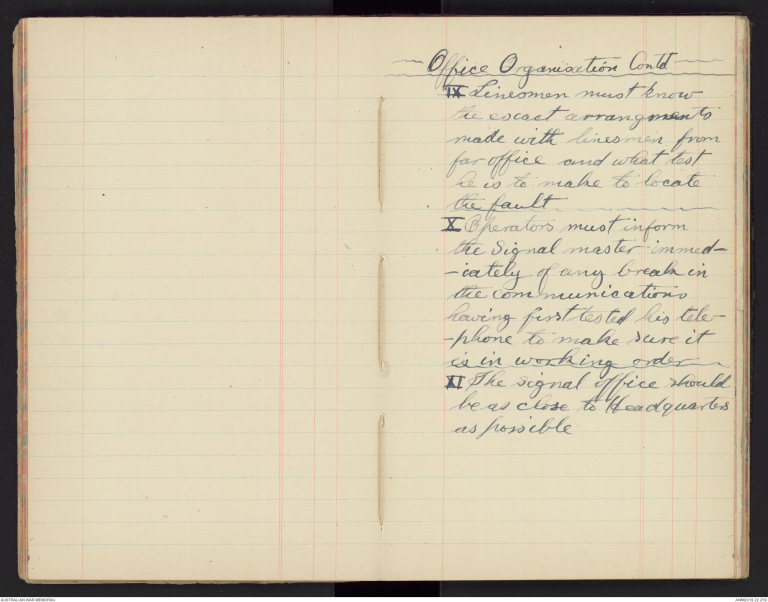
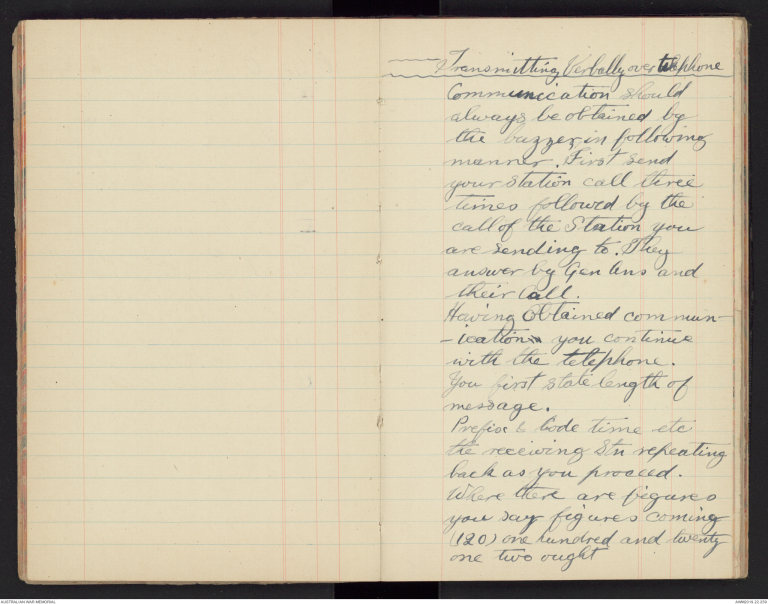
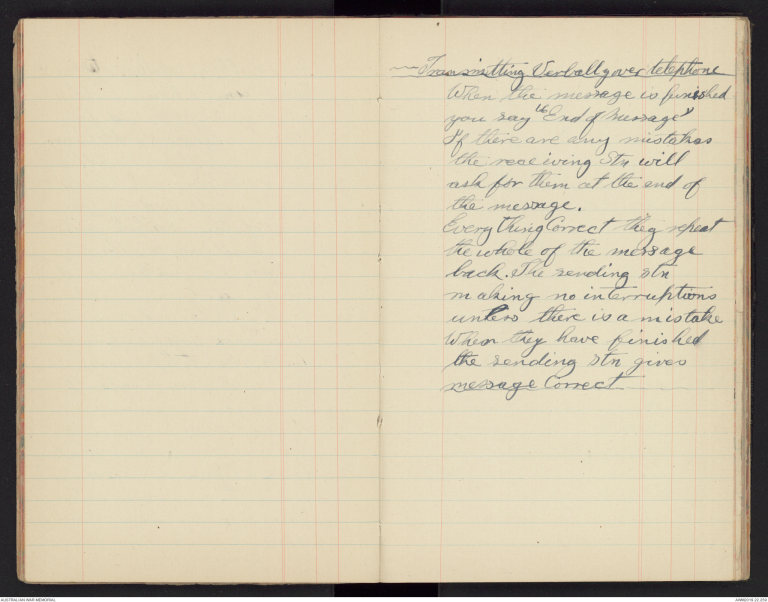
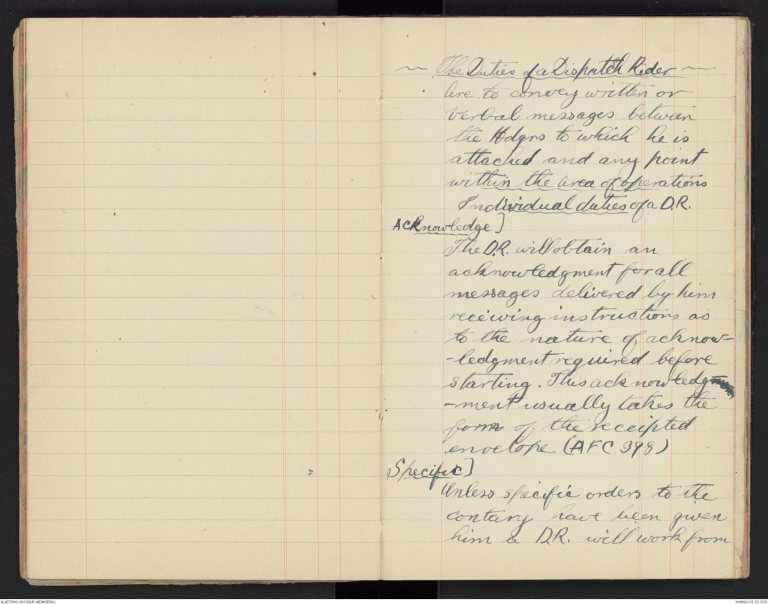
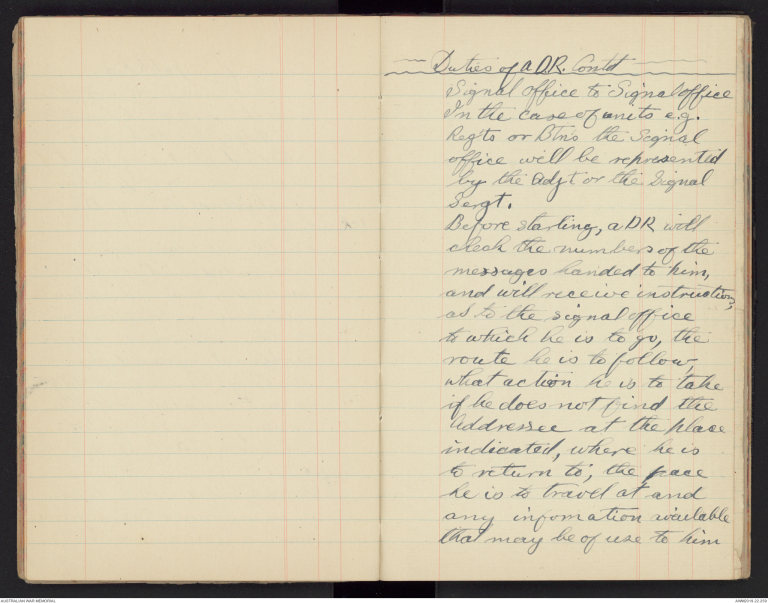
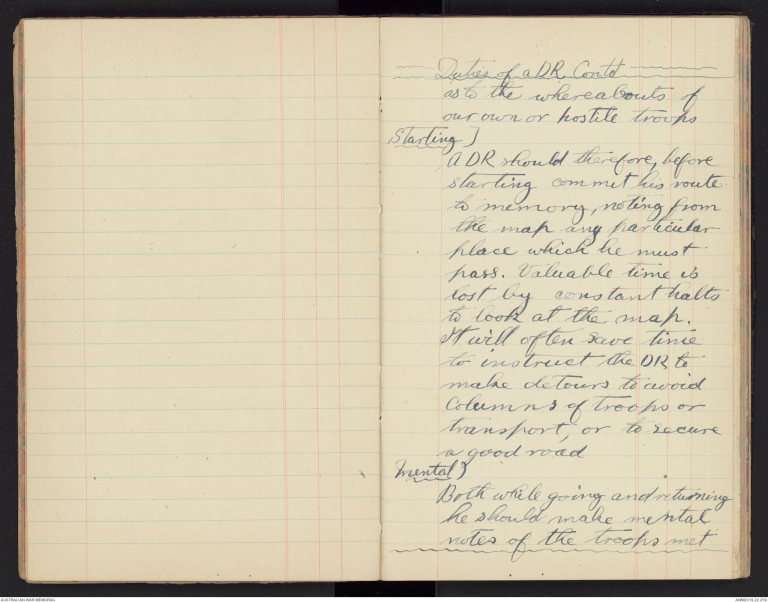
Calling up Stations
Unknown Stn Could
preparative until answered
by Gen Ans from Unknown
Stn. ZC would then send.
RU and unknown stn would
acknowledge this and
send their call - say PC -
ZC would acknowledge
PC by Gen Ans PC then sends
G. this is acknowledge and
ZC carries on with the the
message
[*(A) Number of words (B) initial check (C) Use of WB & WA and Repeat Signal*]
Checking a Message
When obtaining corrections
for the number of words
figures are answered by
the General Answer
The initial check is the first
letter or figure of every group
In checking by the initial
check each letter or check
is answered by Gen. Ans.
In checking all micellaneous
signs are sent. In the case of
a full stop All three as are
sent. When the word missed
is arrived at you send G
instead of the Gen Ans. the sending
station then spells out the whole
of the word. If receiving Station
still wishes them to continue spelling
they keep answering by G if not
they answer with Gen Ans and continue
checking. When receiving Stn is quite satisfied
message is correct they will chip in and
send Message Correct signal
Office Organisation
Good office organisation
is essential to good communications
I Signal Master should
endeavour to obtain the
best possible conditions for
his men to work under
II Signal Master or I/C should must keep
a duty roster so that the
duties are evenly divided
each man getting his fair
share
III All operators, linesman
etc must be fully trained
IV Only men actually on
duty should be allowed
in the Signal Office. The
Signal Clerks table should
be just inside the doorway
if possible so that men
coming and going with
Office Organisation
messages will not interfere
with the operators
V All lines to be labelled
lead neatly into the office
and labelled just inside and
outside, they must also be
labelled every 50 or 100 yds
VI Linesmen must always
be ready to go out at a
moments notice to
repair any lines that are U/S.
VII Living quarters must be
as close as possible to the
office so that any additional
signallers may be
called out as occassion may
require at short notice
VIII If possible all lines
must be duplicated so
if one becomes D/S it is
still possible to communicate
through another route
Office organisation Contd
IX Linemen must know
the exact arrangements
made with lines men from
far office and what test
he is to make to locate
the fault
X Operators must inform
the Signal master immediately
of any break in
the communications
having first tested his telephone
to make sure it
is in working order
XI The signal office should
be as close to Headquarters
as possible
Transmitting Verbally over telephone
Communication should
always be obtained by
the buzzer in following
manner. First send
your station call three
times followed by the
call of the Station you
are sending to. They
answer by Gen Ans and
their call.
Having obtained communications
you continue
with the telephone.
You first state length of
message.
Prefix & Code time etc
the receiving Stn repeating
back as you proceed.
Where there are figures
you say figures coming
(120) one hundred and twenty
one two ought
Transmitting Verbally over telephone
When the message is finished
you say "End of Message"
If there are any mistakes
the receiving Stn will
ask for them at the end of
the message.
Everything Correct they repeat
the whole of the message
back. The sending stn
making no interruptions
unless there is a mistake
When they have finished
the sending stn gives
message correct
The Duties of a Dispatch Rider
Are to convey written or
verbal messages between
the Hdqrs to which he is
attached and any point
within the area of operations
Individual duties of a DR
Acknowledge
The D.R. will obtain an
acknowledgment for all
messages delivered by him
receiving instructions as
to the nature of acknowledgment
required before
starting. This acknowledgment
usually takes the
form of the receipted
envelope (AFC398)
Specific
Unless specific orders to the
contary have been given
him a D.R. will work from
Duties of a DR Contd
Signal Office to Signal office
In the case of units e.g.
Reg'ts or Btn's the Signal
office will be represented
by the Adjt or the Signal
Sergt.
Before starting, a DR will
check the numbers of the
messages handed to him,
and will receive instructions,
as to the signal office
to which he is to go, the
route he is to follow,
what action he is to take
if he does not find the
addressee at the place
indicated, where he is
to return to, the pace
he is to travel at and
any information available
that my be of use to him
Duties of a DR Contd
as to the whereabouts of
our own or hostile troops
Starting
A DR should therefore, before
starting commit his route
to memory, noting from
the map any particular
place which he must
pass. Valuable time is
lost by constant halts
to look at the map.
It will often save time
to instruct the DR to
make detours to avoid
columns of troops or
transport, or to secure
a good road
Mental
Both while going and returning
he should make mental
notes of the troops met
 Lilly
LillyThis transcription item is now locked to you for editing. To release the lock either Save your changes or Cancel.
This lock will be automatically released after 60 minutes of inactivity.